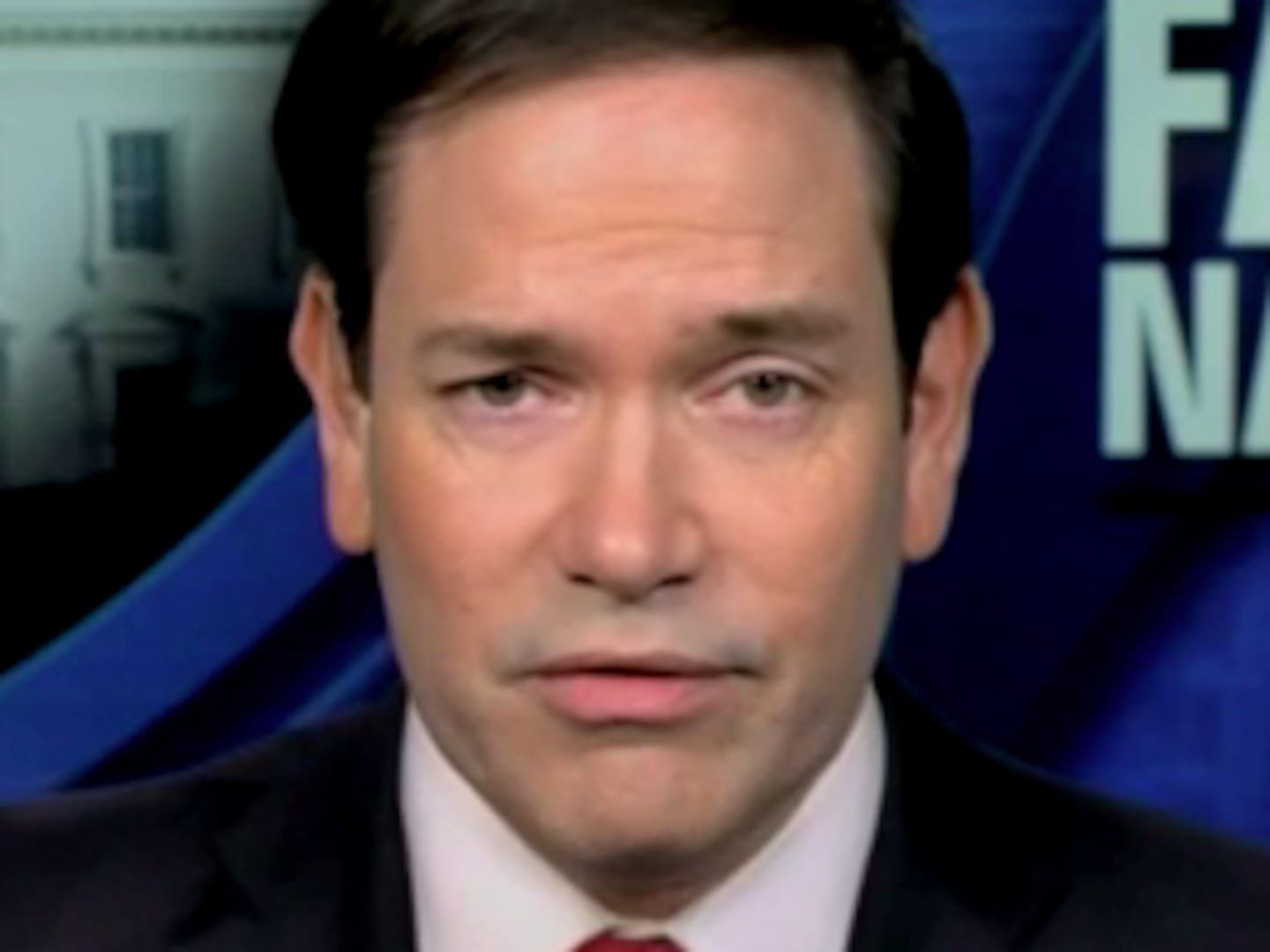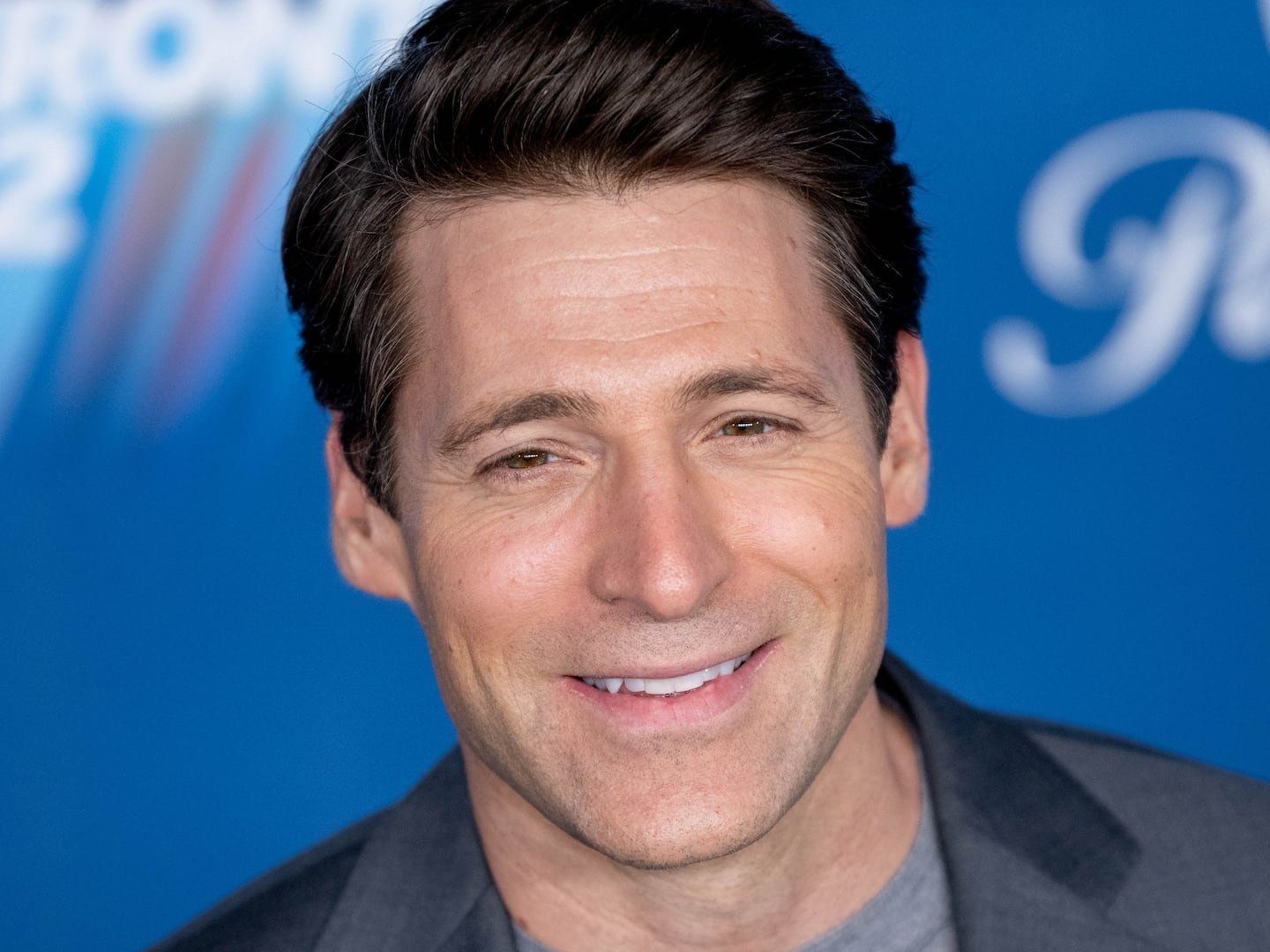When Buffy the Vampire Slayer expert Evan Ross Katz set out to write the ultimate oral history of the cult-favorite series, he wanted to recapture the awe that instantly hooked him back in 1997, when he’d dash away from his mom’s prying eyes to watch the fearless, wise-cracking Buffy take on whatever monster made the sorry mistake of creeping up on her in a dark alley. “I just really connected to the character of Buffy—I’d never seen anyone like her,” Katz tells The Daily Beast about the protagonist played by Sarah Michelle Gellar. “My media diet at the time did not contain anything that treated young people with as much integrity and respect.”
He was far from the only one who was happily sucked into the world that creator and director Joss Whedon had dreamed up about a badass girl and her friends battling the countless foes that cropped up during their adolescence, while deftly exploring themes in a way that so many other teen dramas couldn’t seem to master. Over the show’s seven seasons and its spinoff series Angel in 1999, Buffy managed to create a devoted fanbase that, 25 years after its premiere, is still just as loyal to their heroine.
Katz’s new book Into Every Generation a Slayer Is Born: How Buffy Staked Our Hearts is a celebration of a series that was groundbreaking in so many ways, from having a feminist lead in Buffy herself to showing an authentic romance between two women, which many still point to as a beautiful and powerful representation of an on-screen lesbian relationship. Diehard Buffy fans (including politician Stacey Abrams and actress Cynthia Erivo) reminisce on what the show meant to them, while also re-examining some of the series’ shortcomings.
“I have really strong feelings about the ways in which the show shaped who I am. Also, there are aspects of the show, increasingly so over the last few years, that I reject—whether it be how the show was made, or the lack of characters of color on the show, or the show’s sometimes antiquated view of feminism,” Katz explains. “So I think that this book presents an opportunity to celebrate, but also look at this show and say it’s an imperfect show, and that’s OK, but let’s lean into the imperfection.”
But elements of the book had to drastically change when Charisma Carpenter accused Whedon last February of “abusing his power” and killing off her character, Cordelia, in an act of retaliation because she was pregnant. (A few months earlier, actor Ray Fisher had accused Whedon of toxic behavior on the set of Justice League.) Akin to the stream of demons, ghosts, monsters, and other supernatural creatures that crawled their way out of Hellmouth, allegations against Whedon steadily mounted from crew and cast members who threw their support behind Carpenter, including some who echoed her claims that Whedon created a toxic working environment and had a habit of pitting actors, particularly women, against each other.
“It certainly changed the book that I was writing, because had that not happened… I had a few quotes at that point about some things, but this opened up so much,” Katz says. “I think people felt more both compelled and comfortable in being real. One thing that Amber [Benson] says in our original interview, which happened before the allegations against Joss, she talked about feeling this desire to not upset the fanbase, allowing them to have this memory of the show—and by proxy, the production of the show—to not tarnish people’s feelings about the show by revealing there might be more to the story.
“I think that one of the great things about Ray Fisher and Charisma, the people who have come forward, I think it relinquished that sense of responsibility that a lot of the cast was carrying.”
Below is an adapted excerpt from Katz’s new book, Into Every Generation a Slayer Is Born: How Buffy Staked Our Hearts, out on March 15, that delves into cast and crew members’ feelings about Whedon and their time on Buffy after Carpenter bravely came forward with her story.
“Joss always talked to me about how the show was about a young girl becoming an empowered woman and how—and this is what really gets me—how he didn’t want to see the pretty blonde victimized, how he wanted to see her as the hero of the story,” recalls costume designer Cynthia Bergstrom. “And now in light of everything that’s come out, I’m just thinking, Then why the fuck did you victimize everybody? Why did you traumatize? What is wrong with you?”
In 2017, Lowery Woodall gave a keynote address at the Whedon Studies Association conference. The topic of his talk was the way that the organization needed to brace for the fallout of Whedon’s alleged behavior following his ex-wife’s letter detailing the torment she suffered as a result of the implosion of their marriage. “I saw this as the first domino to fall in a long list of allegations that would come out about Joss that cast doubt on the kind of person he was and how his personal behavior impacted the legacy of his work,” Woodall says. “I cautioned the organization to take proactive steps to distance itself from the man and instead focus on the content of the shows/films/et cetera. I believe that Mr. [Ray] Fisher’s comments as well as those from Charisma Carpenter and Gal Gadot have borne out my initial concerns.”
Why are we talking about Buffy the Vampire Slayer twenty-five years after the show first aired? To celebrate the legacy, yes, but also to correct the record. Some will question the timing. “What took so long?” is a refrain too often expressed to and about victims of abuse in all walks of life when they choose to tell their story. Why and when a survivor comes forward isn’t for any of us to know or to challenge. Imagine, if you can, being associated with something that so profoundly changed people’s lives—and continues to do so decades later—that for you is rooted in trauma. Might you have complex feelings?
I spoke to Carpenter prior to her issuing a public statement about much of what that statement crystalized, in particular the longstanding rumor that she was fired from Angel during the show’s fourth season because of her pregnancy.
“It was 100 percent not expected,” she says of her untimely dismissal from the show, which was met with fervent backlash from the fandom (a theme, eh?), many of whom had come to see Cordelia as the co-lead of the series. “When you’re a thirty-year-old woman and you’ve been on a show for seven years, and you’ve been with the same partner for like five years, you do have sex. It’s plausible a person could get pregnant, and it shouldn’t be something that could [get you fired].”
Carpenter says she tried to reach out to “the powers that be” (read: Whedon and co.) to inform them of her pregnancy. She heard nothing back. Finally, once Whedon had learned the news via a third party, he requested a meeting with her. “I was let know how it was fucking everything up for the season,” she says.
What’s so odd about hearing that story, I tell her, is that if something like that were to ever happen today—a showrunner allegedly firing his lead for getting pregnant—there would be immediate and swift action against the showrunner. “It wasn’t supposed to be accepted then,” she says. “To be honest with you, I was so afraid to say the truth for fear of those things that we fear. I had a little baby to feed and I was a primary caretaker of my family. I couldn’t afford to say my truth. I couldn’t afford to talk about the way that I was treated.”
“I imagine it had to be so difficult,” I tell her.
“Beyond. I don’t know that my career has ever really overcome it, to be honest. In the end, I found out later—and listen, it’s not lost on me how well an actor is paid—that I was the lowest-paid actress in prime-time television. I don’t know if that’s bad agenting or just the machine that is ‘You’re not enough,’ ‘You’re not good enough,’ ‘You create these issues,’ ‘You have anxiety.’ And I’m not disagreeing on this, I was challenging in those areas, but I was always made to feel that I was also very worth it. So it was always sort of like this ‘Oh my God, you’re this huge talent,’ ‘We want to do everything to make it possible for you to be your best,’ and ‘America loves you’ and ‘You’re awesome.’ Then at the same time when it came time to talk about my paycheck, it was, ‘You’re a problem,’ ‘You cost us this.’ It was always this building up to knock you down. It was always something like that going on, and it was very disruptive to me as an artist. It was disruptive to me as a person, and as a new mother I had a lot to traverse and navigate as skillfully as possible. However, back in the ’90s you didn’t necessarily have a lot of voice.”
Carpenter’s comments lit the match. Within hours, her co-stars began weighing in—well, most of them. “Buffy was a toxic environment and it starts at the top. [Charisma] is speaking truth and I support her 100%,” Amber Benson tweeted. “There was a lot of damage done during that time and many of us are still processing it twenty plus years later.”
Benson elaborated on this more in our interview. “It starts at the top—and I’m not talking about Sarah, I’m talking about Joss. And it creates the tone of the set. And I worked on shows where the producers are very aware of this, and they work really hard to make everybody feel like they are important and that they have a place in the show. And I think because this was Joss’s first show, there were things that got dropped. I think sometimes it made the set feel tense because people were like, ‘I don’t know that I’m important. Like, I know Sarah is important because she’s the name of the show, but am I important?’ And I think that that made it hard. And I think it puts a lot of pressure on relationships with Sarah and other actors and then other actors with each other. I think there was a lot of tension in that way.”
She continued: “I came in in the fourth season, so all that stuff had already been concretized. And so it was a little bit of navigating and being aware that there were sort of alliances and tensions and some people got on really well and other people were okay...nobody was flat-out fighting or anything, but you could just feel like people weren’t sure of their place. And I think it is the boss’s job to make everybody understand where they are in the hierarchy and how they fit in and that they are necessary, you know? ’Cause if you make everybody feel like they’re a part of it and that they’re necessary and that they’re not worried about their job, then there’s this comfortability. And I think when that wasn’t happening, there was some uncomfortability on-set.”
It’s easy to look at Whedon’s rise without context, and marvel. He was the invisible kid in high school who became not only hyper- visible but hyper-beloved, and created a space for other invisibles to feel more seen. “I was one of those kids who no one pays attention to, so he makes a lot of noise and is wacky,” he told Rolling Stone in 2000. “But I was funny; I wasn’t totally annoying. I decided early on that my function in life was to walk into a group of people, say something funny and leave while they were still laughing. Which is pretty much what I did, only now I get paid for it.” It’s a remarkable trajectory... out of context.
“I think that this mentality that we’re seeing in him is kind of like this high school nerd who’s angry that the pretty girls didn’t like him and he gets older and he’s gonna lash out at the pretty girls or hook up with some of the pretty girls, and the pretty girls that don’t want to hook up with him he’s going to lash out at them in some way or turn other girls against them,” surmises Danny Strong, who mentions an oft-repeated refrain from Whedon (repeated again here in this book) about his own experiences of being an outcast in high school who couldn’t get the girl. “I just want to say if you’re in your mid-thirties, fuck you. That’s not an excuse. You should know better by then. You’re very rich. You’re very successful. Give me a fucking break that you’re still talking about being the high school nerd that didn’t get the girls. It’s not an excuse to mistreat people.”







